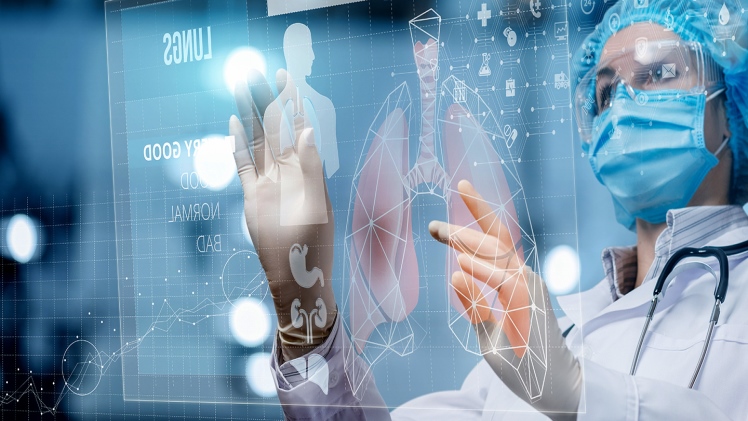In the not-so-distant past, the practice of medicine was a realm shrouded in mystery and superstition. Ailments were often attributed to supernatural forces, and treatments ranged from herbal remedies to rituals performed by shamans. Fast forward to the present day, and we find ourselves in a world where medical science has made astounding progress, transforming the way we diagnose, treat, and understand diseases. The evolution of modern medicine is a testament to human ingenuity and the relentless pursuit of knowledge. In this article, we will explore the fascinating journey that has brought us to the state of medicine we know today.
Ancient Roots: The Beginnings of Medicine
The roots of modern medicine can be traced back thousands of years to ancient civilizations. In places like Mesopotamia, Egypt, and India, early medical practitioners developed a rudimentary understanding of anatomy, herbal remedies, and surgical procedures. The famous Edwin Smith Papyrus, an ancient Egyptian medical text dating back to around 1600 BCE, contains descriptions of various medical conditions and surgical techniques.
The Ancient Greeks, particularly figures like Hippocrates, laid the foundation for a more systematic and rational approach to medicine. Hippocrates is often referred to as the “father of Western medicine” and is credited with introducing the concept of the four humors and emphasizing the importance of observation and documentation in medical practice. His ethical code, the Hippocratic Oath, is still relevant in the field of medicine today.
The Middle Ages: A Dark Period for Medicine
Despite the advances made by the ancient Greeks and other early civilizations, the practice of medicine during the Middle Ages was often characterized by superstition and mysticism. The influence of the church, combined with limited scientific understanding, hindered progress in the field. Medical treatments frequently involved bizarre and ineffective practices, such as bloodletting and trepanation (drilling holes in the skull).
The Renaissance: A Rebirth of Medical Knowledge
The Renaissance period, spanning roughly from the 14th to the 17th century, marked a resurgence of interest in science and human anatomy. Pioneering figures like Andreas Vesalius challenged the traditional views of the human body with his groundbreaking anatomical illustrations. His work, “De Humani Corporis Fabrica,” laid the groundwork for a more accurate understanding of human anatomy.
The Enlightenment and the Scientific Revolution
The Enlightenment era, which followed the Renaissance, was a time of intellectual awakening and a shift toward evidence-based reasoning. The Scientific Revolution, spearheaded by luminaries like Galileo Galilei and Isaac Newton, led to significant advances in various scientific disciplines, including medicine.
One of the key developments during this period was the microscope, invented by Antonie van Leeuwenhoek. This invention allowed scientists to observe microorganisms for the first time, paving the way for the understanding of infectious diseases. The work of Robert Hooke and later Louis Pasteur further advanced microbiology and the germ theory of disease.
The 19th Century: The Rise of Modern Medicine
The 19th century witnessed a profound transformation in the practice of medicine. Key developments included the discovery of anesthesia, which revolutionized surgery and made complex operations possible, and the development of the stethoscope, which greatly improved the diagnosis of cardiovascular and respiratory conditions.
Perhaps one of the most pivotal moments in medical history was the introduction of the smallpox vaccine by Edward Jenner in 1796. This marked the birth of immunization and laid the foundation for the field of vaccinology, which has since saved countless lives.
The 20th Century: A Century of Medical Milestones
The 20th century brought a rapid acceleration of medical advancements, reshaping healthcare in profound ways. Here are some of the key milestones:
Antibiotics: The discovery of antibiotics, beginning with penicillin in 1928 by Alexander Fleming, revolutionized the treatment of bacterial infections. Antibiotics have since become a cornerstone of modern medicine.
Radiology: The development of X-ray technology by Wilhelm Conrad Roentgen in 1895 opened up new possibilities for diagnosing and treating a wide range of medical conditions.
Vaccines: The 20th century saw the development of vaccines for various diseases, including polio, measles, and influenza, leading to significant reductions in morbidity and mortality.
Organ transplantation: The first successful kidney transplant in 1954 by Dr. Joseph Murray marked the beginning of modern organ transplantation, offering hope to countless patients with organ failure.
Medical imaging: The introduction of technologies like magnetic resonance imaging (MRI) and computed tomography (CT) scans revolutionized non-invasive diagnosis and monitoring of diseases.
Genomics: The completion of the Human Genome Project in 2003 paved the way for a deeper understanding of genetics and personalized medicine.
Modern pharmaceuticals: The 20th century saw the development of a wide range of pharmaceutical drugs for various conditions, including cancer, cardiovascular disease, and mental health disorders.
The 21st Century: Challenges and Opportunities
As we step into the 21st century, medicine continues to advance at an astonishing pace. Breakthroughs in fields like genomics, regenerative medicine, and artificial intelligence are offering new avenues for diagnosis and treatment. Telemedicine and digital health technologies are transforming the way healthcare is delivered, making it more accessible and convenient.
However, the 21st century also presents its own set of challenges, including the rising burden of non-communicable diseases, the global threat of emerging infectious diseases, and the need to ensure equitable access to healthcare for all.
In Conclusion
The evolution of modern medicine is a remarkable journey of human progress. From the superstitions of ancient times to the cutting-edge technologies of the present day, medicine has come a long way. It is a testament to the collective effort of scientists, physicians, and healthcare professionals who have dedicated their lives to understanding and alleviating human suffering.
As we look to the future, the possibilities in medicine seem limitless. With continued scientific discovery and innovation, we can hope to overcome current challenges and provide a healthier, more equitable world for generations to come. The evolution of modern medicine is a story of resilience, curiosity, and the unwavering pursuit of better healthcare for all.


